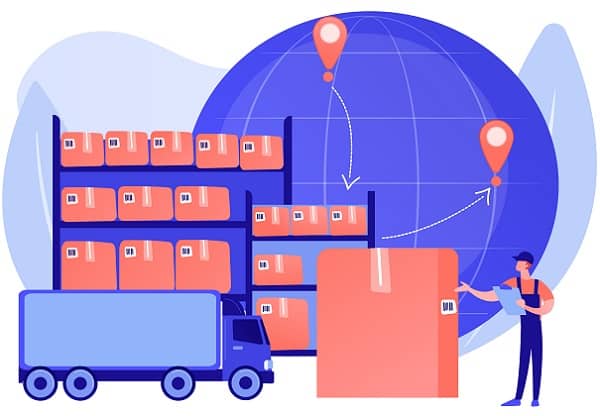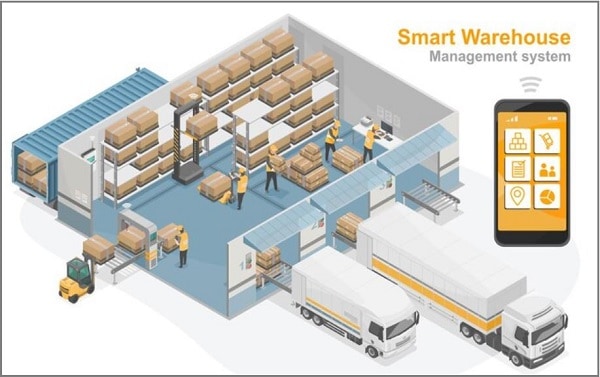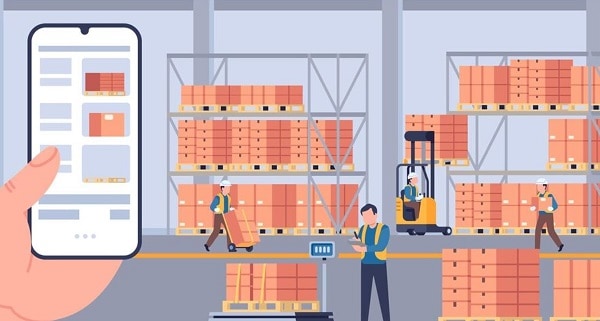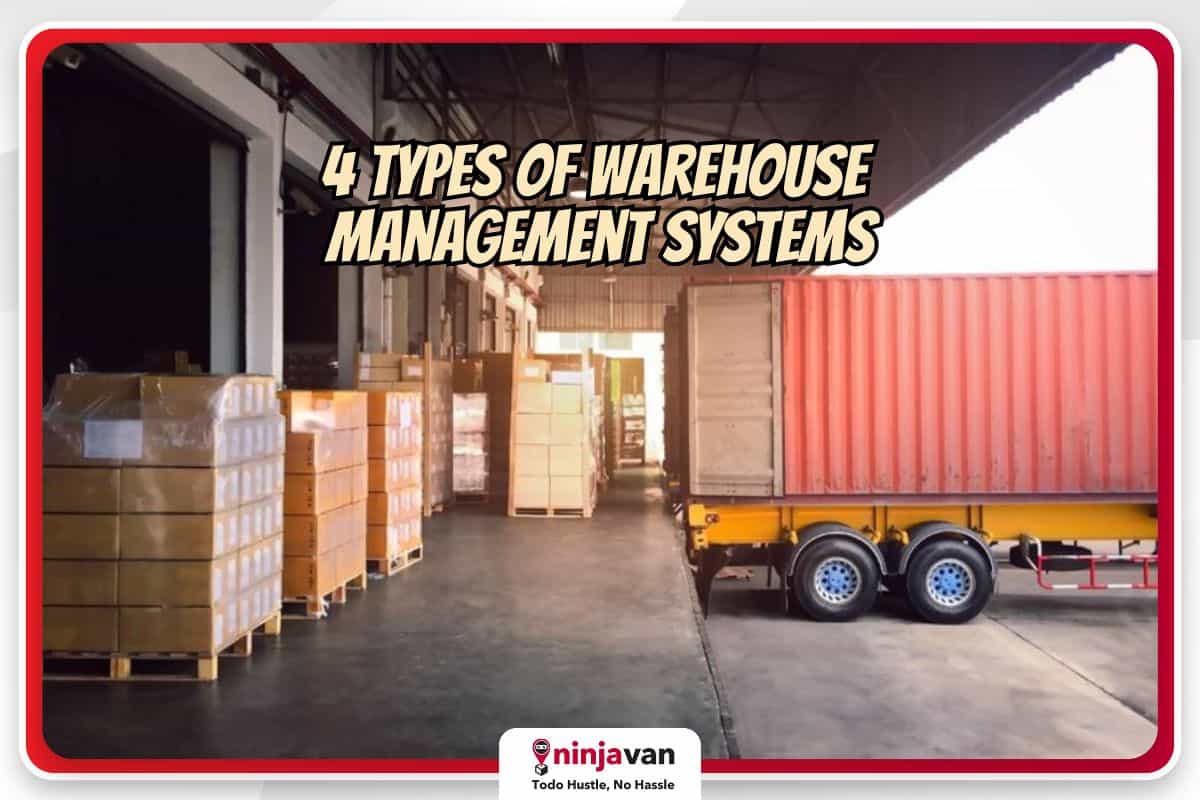When your business is growing and you need storage management solutions, what do you do? You can lease a bigger space and hire more people. Or, to save on resources without compromising efficiency, you can allocate resources to a warehouse management system (WMS).
Warehouse management systems are integral for growing ecommerce and non-ecommerce businesses alike. They help you manage and monitor daily warehouse operations, from the moment your goods arrive at a fulfillment center until they are dispatched for delivery. Pero ano nga ba ‘yun?
Also read: The Top Benefits of Warehouse Automation
What is a warehouse management system?
A dependable WMS system can:
- Streamline warehouse management, from receiving goods to packing and shipping products to tracking and replenishing inventory
- Consolidate and organize all warehouse activities into one interface
- Integrate other tools and software that aid with warehouse fulfillment
The right WMS for your business ensures efficient warehouse management and streamlines fulfillment processes.
What does WMS do?
A warehouse inventory management system represents the new generation of storage solutions. It increases operational efficiency and reduces the total cost of ownership through adaptable and user-friendly software.
How does WMS help your business?
- Centralize your warehouse inventory counting and tracking
- Manage and monitor warehouse fulfillment through cloud software
- Gain real-time visibility of your inventory and warehouse operations
- Reduce the cost of storage management, maintenance, and upgrades
In addition, effective inventory management minimizes human error. The entire warehouse inventory system can be automated, from product counting to order processing. This way, you can spend less resources on menial tasks and, instead, focus more on ways to expand or scale up your business.
Warehouse management systems encourage faster fulfillment times, too. As a result, your consumers have a good experience and likely become return customers.

Who needs WMS?
Any business, ecommerce or non-ecommerce, that uses warehouse logistics to stock and manage a large inventory of products should consider WMS. Why? Speed and timeliness are crucial when you use third-party logistics to complete orders, whether you’re a wholesaler or a distributor.
A WMS streamlines your warehouse operations to keep track of your inventory and monitor items undergoing the order fulfillment process.
How can it help you if your current priority is to accommodate business growth?
- Organized storage and optimized warehouse space usage
- Clear, real-time tracking of where your shipped items are
- Quick and efficient order fulfillment, resulting in happy customers
So if you’re using modern logistics solutions and integrating artificial intelligence (AI) and Internet of Things (IoT) into your processes, consider allocating resources to a warehouse management system. It streamlines your warehouse inventory, helps you save on operational costs and earn more profit, and ensures your business thrives.
#NinjaTip: Your business needs a one-stop logistics partner. Partner with Ninja Van for end-to-end and customized solutions from express delivery to fulfillment, supply chain, and logistics management. Ship with Ninja Van today!
4 types of warehouse management systems
When choosing a WMS to address your business needs, you have four options:
1. In-house or on-premise WMS
For this type of WMS, your team is responsible for hardware and software maintenance. You have full control of system security and uptime, but it typically has a higher upfront cost because of the components. It’s more suitable for small businesses, not large-scale operations.
2. Cloud-based WMS
Unlike in-house WMS which you manage on your own, you can free up time by opting for a scalable cloud-based warehouse management system. It’s typically a subscription-based WMS with a remote server host. The vendor is in charge of updating the software and fixing bugs.
3. Stand-alone WMS
Stay on top of your fulfillment cycles with the help of a stand-alone WMS. The software acts as a warehouse management tool, which streamlines your day-to-day warehouse operations. However, its accounting or inventory functionalities may be limited.
4. Integrated WMS
An integrated warehouse management system is typically an add-on to your ERP (enterprise resource planning) system, which includes accounting, inventory, and invoicing, among others. With this, you can track everything in one platform — from inventory tracking to order picking to product shipping.
Warehouse management systems come in different types and formats. They’re scalable and can be tailored based on your business’s size, projected growth, and other unique needs. You can configure the WMS to accommodate the specific type of products you sell, too
Choose the most suitable option for your business with the help of experienced warehouse and fulfillment experts.
Smart warehousing technologies you can use
1. Radio frequency identification (RFID)
RFID is a smart technology that stores data in a microchip and transmits it through radiofrequency. You can use it to label your goods and add other information, like their origin and destination.
It’s worth incorporating into your warehouse fulfillment process because it makes it easier to tag and monitor your goods. It’s best for stock management and storage documentation.
2. Warehouse automation
Warehouse automation is the use of software to aid, replace, or speed up manual jobs. If you’re looking to cut labor-intensive tasks that require manual data entries and repetitive physical activities, this is the solution. It minimizes the probability of fatigue, injury, and human error, so you can allocate your resources toward other tasks.

3. Collaborative robots
Improve productivity and enhance warehouse fulfillment efficiency through collaborative robots. They can be easily integrated into your existing WMS infrastructure and can be deployed within a few days or weeks. You can move them across the warehouse to support employees. They’re useful in repetitive manual tasks by boosting productivity, increasing accuracy, minimizing human error, and reducing the labor gap.
4. IoT
IoT is a smart warehousing tool that streamlines administrative work and helps you manage warehousing operations data. You can monitor your inventory, track the movement of goods, and forecast product demand trends. By implementing IoT, you’ll see improvements in warehouse operations productivity and financial performance.
10 benefits of warehouse management
Need more convincing to invest in a warehouse management system? Consider the various ways you can benefit from it:
- Improved operational efficiency: Streamline your warehouse processes
- Quick implementation: Ramp up warehouse supply chain in a few weeks
- Seamless integration: Make your ERP and WMS work closely together
- Scalability and flexibility: Adjust WMS functions based on your needs
- Real-time visibility: Monitor and track your inventory through your WMS
- Inventory traceability: Mark the batch and serial numbers of your inventory to reduce potential redundancy and recall situations
- Lower operating costs: Identify the most cost-effective use of warehouse space
- Streamlined billing process: Generate invoices and track orders easily
- Labor management: Forecast labor needs and match tasks accordingly
- Positive customer experience: Ensure quick and safe order fulfillment

Outsource your warehousing needs to Ninja Van
When it comes to order fulfillment and warehousing solutions, Ninja Van is the answer. Our industry experience and tailored solutions will help you save overhead costs that comes with warehouse rental and manpower.
Outsourcing your warehousing needs allows you to focus on your core skills and expand your business faster.
Work with our warehousing experts today!
More tips to optimize your business logistics:
Why You Need To A One-Stop Logistics Solution
What’s the role of 2PL in Your Supply Chain?






